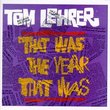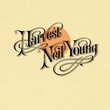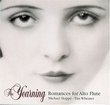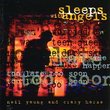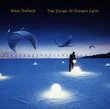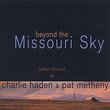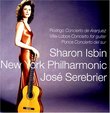| All Artists: Philip Glass, Kronos Quartet Title: Philip Glass: Dracula Members Wishing: 1 Total Copies: 0 Label: Nonesuch Release Date: 8/31/1999 Album Type: Soundtrack Genres: Dance & Electronic, International Music, Jazz, Soundtracks Styles: Techno, Avant Garde & Free Jazz Number of Discs: 1 SwapaCD Credits: 1 UPCs: 075597954227, 0801837003529, 080183700352, 0075597958423 |
Search - Philip Glass, Kronos Quartet :: Philip Glass: Dracula
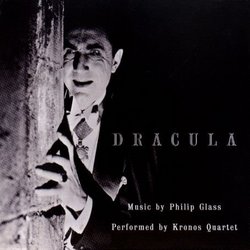 | Philip Glass, Kronos Quartet Philip Glass: Dracula Genres: Dance & Electronic, International Music, Jazz, Soundtracks
It's no surprise that some of Philip Glass's most inspiring projects have been multimedia. The composer's minimalist tendencies lend themselves to the accompaniment of vast landscapes, silent films, and--now--Tod Browning'... more » |
Larger Image |
CD DetailsSynopsis
Amazon.com It's no surprise that some of Philip Glass's most inspiring projects have been multimedia. The composer's minimalist tendencies lend themselves to the accompaniment of vast landscapes, silent films, and--now--Tod Browning's 1931 horror classic, Dracula. With longstanding collaborators the Kronos Quartet performing the score, Glass has created a soundtrack that moves with rapid-fire momentum and a timeless chamber-music feel. Dracula never sounds sinister or ironic, just ominous--the perfect companion to a film with plenty of dialogue but no pre-existing score. So what if we've already heard Glass's stylistic trademarks--striking arpeggios, repeated motifs, and the like--on any number of albums (for example, the Kronos/Glass soundtrack to Mishima or Uakti's 1999 release, Aguas de Amazonia)? Unlike the epic three and a half hours of Music in Twelve Parts, this enjoyable disc takes just over an hour and it's well worth hearing. In the new video release of Dracula, accompanied by Glass's score, you'll never see Bela Lugosi's mug the same way again. --Jason Verlinde Similarly Requested CDs
|
CD ReviewsThe King of Vampires meets the Master of Minimalism Dr. Christopher Coleman | HONG KONG | 02/27/2001 (3 out of 5 stars) "This CD features music written by Philip Glass as a live accompaniment to the 1931 film Dracula. In a rather interesting turnabout from the typical situation, the music was written years after the film was made. Glass is riding the recent wave of interest in vampires that was probably spawned by author Anne Rice with her book Interview With the Vampire. The 1931 movie Dracula is not a silent film--there is dialogue, but the only music originally used was a selection from Tchaikovsky's Swan Lake played during the opening credits. I should preface my remarks by noting that although I have seen the film (lo, those many years ago) and heard the music, I have not experienced the two together, as Glass intended. However, the folks at Nonesuch have released this as a CD, and so we must judge it as best we can on that basis. The film, directed by Tod Browning and starring Bela Lugosi as the vampiric count, is a relic of an earlier time, like Dracula himself. It reflects an aesthetic approach that has become foreign to us; that we might even think naive. It is not a technicolor gore-filled splatterfest, not at all. No blood is shown, no corpses decay in slow motion. Indeed, Lugosi's Dracula doesn't even have fangs, and he meets his death out of camera view. Things are implied rather than revealed and explained in detail. And for this, Glass's music seems quite appropriate. It is picturesque--music for a film is so almost by definition. But it is a black-and-white picture, full of shadows concealing things unseen. Not for Glass a huge romantic orchestra in melodic ecstacy, or the full organ trembling a series of diminished chords. Instead, the music for Dracula is scored for string quartet alone, playing the typical minimalist arpeggios and harmonic formulae. At its best the music can be very interesting and completely appropriate to the scene, as in the selection depicting Dracula's driverless carriage transporting the film's hero, Jonathan Harker, to Castle Dracula. The spinning wheels of the carriage are so clearly portrayed, and the sense of menace so obvious, that we don't actually need the visual images to recognize and respond to the meaning conveyed. Glass also opens up his composititional tool kit more widely than he usually does, which makes much of the music on this disc more interesting than much of his other work. Although melody is only ever present in the barest of shreds, Glass uses a quite wide dynamic range, a broader palate of tone colors and articulations and a more varied harmonic world than he does customarily. "Horrible Tragedy" is another example of understated, quiet menace; and also quite different from what we've come to expect from Philip Glass. The unrelenting parallel dissonance, high register and soft dynamics in this movement create a very eerie and somewhat unpleasant sensation completely appropriate to the supernatural subject. However, I must say that although there is a lot of interesting music on this disc, there is also far too much that lacks any interest at all. Quite a lot of the middle of the disc is obviously there because the movie needed music, but without the context of the visual element of the film the music is like a mindless zombie. Almost half of the disc is made up of the kind of Glass's music that many classical music lovers have come to loathe--filled with endlessly repetitive arpeggios at a soft dynamic level using the same harmonic progressions over and over. Sure, it's good music to put on while you are reading a book or folding laundry--but too much of this music for Dracula is completely toothless. Before the demonic hand of marketing rose unbidden from its corrupt grave and took over the world of classical music, composers used to write suites. Suites are made up of only the best of the music from a longer piece. A suite from this CD would have been very welcome; but the evil marketing geniuses have decided that we need to suffer through the whole thing. Alas, here's a case where the aesthetic of reserve would have benefited both the music and the listener. Furthermore, the Kronos Quartet performs with questionable accuracy during some of the fastest arpeggiated passages. But having said that, there is much of worth here, and not only for fans of Philip Glass. Approaching this music with appropriate expectations will reward the listener with a tasty bite." A minor work by Philip Glass Zack Davisson | 11/05/1999 (4 out of 5 stars) "Philip Glass' output is large, alternating between major pieces, consisting of beautiful new music (The Screens or the Saxophone Quartet Concerto) and minor works. In these minor pieces he recycles ideas from older works - I think Dracula is one of them. It is a good piece for string quartet but there's nothing very original in it. A release of Orphée, the beautiful opera-ballet Les Enfants Terribles or even the new Symphony No.5 would be much more satisfying. Oh my gosh, that's sounds like a bad review! As I said: it's not a bad piece - 'In the Theatre' is a nice movement and 'The Storm' is very dissonant and quite original. Give it a try, it's really not bad at all. (For the people who dismissed Glass' music as 'Is he serious?' or something like that: Try 'The Screens'!)" Definetely worth picking up epsy | Turner, ME United States | 01/19/2003 (4 out of 5 stars) "As years go by it seems as if almost every premise for something great has been overused and beaten to death, it's really cool to see an old classic like this given the right treatment without making a mockery of it. Even if you've memorized the entire movies dialogue before this score was introduced, you'll still have visions of Bela Lugosi on the screen when you listen to this soundtrack after seeing it in conjunction with the film. As usual, Kronos Quartet works feverishly with the composer's true intent behind them and churn out quite a great soundtrack that is not only enjoyable as a soundtrack, but an album that stands on it's own just as well."
|

 Track Listings (26) - Disc #1
Track Listings (26) - Disc #1